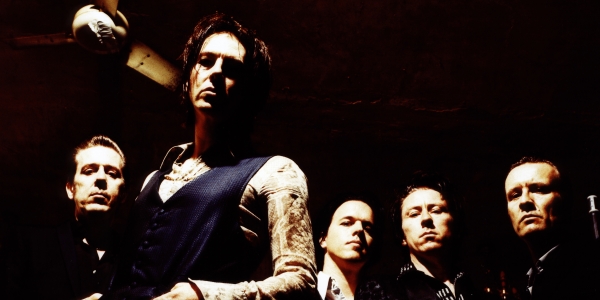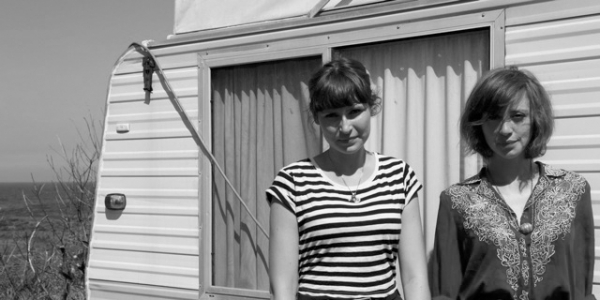Yes, it was only January passed that the Jim Jones Revue (which is comprised of Rupert Orton, Gavin Jay, Nick Jones and Henri Herbert – a recent replacement for the band’s former pianist Elliot Mortimer) was here as part of the Big Day Out; it is something Jones will not quickly forget.
“That was an amazing way to see Australia. It was my first time there and travelling to every capital city, going to these great parties organised by the Big Day Out…” he laughs with the fond recollection of times most of us will never get to participate in.
“We even played some of our own shows, Sideshows they called ’em, and it was great to do those. Tex Perkins came to our Melbourne Show, we saw Kim Salmon, we caught up with a few other road warriors,” he chuckles once again with an insider’s insouciance only available to those who have been rocking world stages for many years.
“But it’s been pretty much non-stop since then,” he goes on. “We left Australia and went to South By South West, which was awesome, and as well we played shows on both US coasts and then we headed back to the UK for more shows,” he pauses for breath, “and then we found out that we’d been asked to play the David Letterman Show back in the US.”
Jim Jones goes on to explain in some detail, and really chewing up the 15 minutes we had allotted for the interview the difficulty the band faced getting from France, where they were playing to NYC for the Letterman Show, only to find out that all the Eastern seaboard airports were closed to the Hurricane. Thankfully, the Letterman folks were so enthused about the Jim Jones Revue they happily rescheduled, but this meant more travel, less sleep and more airport time.
You’re not complaining though, are you?
‘Hell no,” Jim Jones shoots back immediately.
I put it to him that to play one song only, with the vim, vigour and enthusiasm the band display both live and on record, must be hard.
He concurs, “There is a point, two or three songs in where you make that connection with the audience. It’s not just the band playing to a crowd of faces, it does become ‘us’.”
The Jim Jones Revue, make no mistake, definitely recall a sound of a bygone era; the honky tonk piano, 12 bar blues boogie and yelpin’ and a’hollerin’ favoured by Jones have a distinctly Jerry Lee Lewis vibe to it; Jones agrees but does see it more as the culmination of 50 years of musical de-evolution.
“We have drawn a line through all of that explosive rock’n’roll music since then, Little Richard, Jerry Lee through the ’60s, ’70s, ’80s… even to the more explosive stuff of now and the ’90s.
“The ’80s, for me, is when rock’n’roll went underground, it become a real subculture with bands like The Birthday Party, The Cramps, some of the stuff Tex and Kim were doing as well.”
Jones sees this reflected in the audiences, the growing audiences, at their shows.
“France is where it really started to take off for us, and the first few times we went there we were always being approached after the show by these real trainspotter types. Y’know, asking if we had the third reprint of the first album by such and such.
“But it didn’t take long for older teenagers and folks in their early 20s to get it and they’re the ones more inclined to really get into it down the front.
“We’ve even had folks in France tell us about the time they actually saw Jerry Lee on his first tour to Europe while they are standing their with their kids and grandkids.”
But just in case you were assuming the Jim Jones Revue is some kind of nostalgia act, the man himself is conscious of shying away from anything too far down the RSL Club circuit. Hell they got Jim (Sonic Youth, Grinderman, The Cramps) to produce their last record, Burning Your House Down, so you can imagine the sonic brutality he’s helped delivered.
“It’s true, it’s a pretty fine line you have to tread to avoid falling into the same old clichés… but if you come at it from the right angle, you can find that the form still has some wiggle room. When you hear early Little Richard recordings they still sound vital… It’s not the form, it’s the presentation,” he adds.

